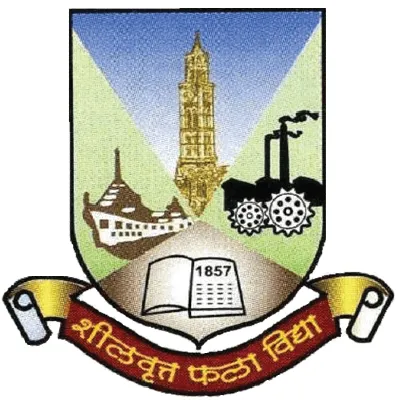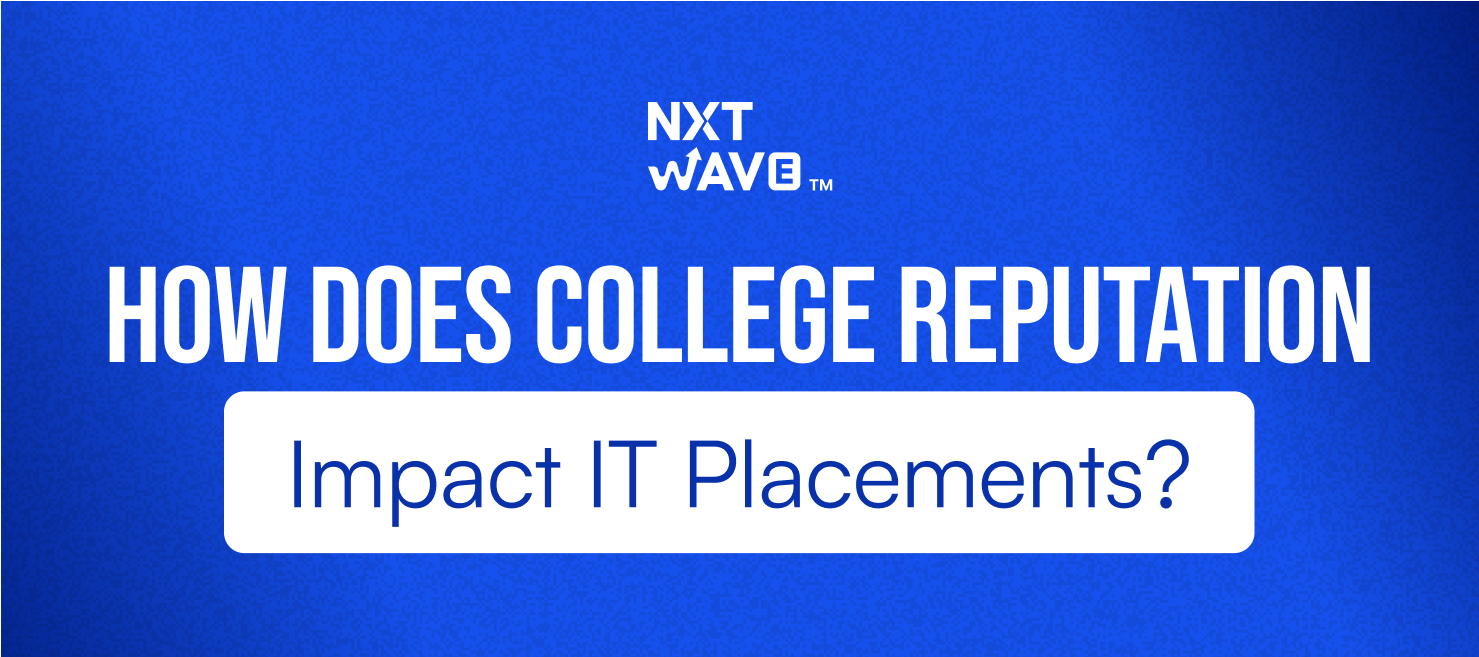About Accenture
Accenture is a multinational professional services company that provides a wide range of services in strategy, consulting, technology, and operations. The company was founded in 1989 and is headquartered in Dublin, Ireland.
Accenture has a vast global presence, with 774,000 employees and offices in more than 200 cities across 52 countries. They serve clients from a wide range of industries in over 120+ countries, providing their services and expertise on a global scale.
Accenture widely operates across various domains, including technology, communications, media and technology, financial services, health, public services, products, and resources. They serve clients in both the private and public sectors, helping them to transform their businesses, improve efficiency, and drive innovation.
With more than 9,000 clients, including 89 of the Fortune Global 100 and over three-quarters of the Fortune Global 500, Accenture has established itself as a trusted partner for organizations across various industries worldwide.
Accenture Interview Process
Accenture interview process typically consists of multiple stages designed to assess candidates' skills, qualifications, and cultural fit for the company. While the exact process may vary depending on the position and location. However, there are three common stages in the Accenture interview process. They are the Online Assessment test, Technical interview, and HR interview.
Online Assessment Test: The first round is designed to test the cognitive abilities and problem-solving skills of the candidate. This online assessment test consists of multiple-choice questions based on quantitative aptitude, logical reasoning, and verbal ability.
Technical Interview: You are qualified for the technical round only if you clear the online test. This round mainly focuses on the job profile and evaluates the skills of the candidate. The candidate should have knowledge of different programming concepts like C, C++, Java, and DBMS among others.
HR Interview: This is the final stage of the interview process. The purpose of this interview is to assess your personality, background, fit with the company culture, salary expectations, etc.
Here are some of the common HR interview questions you can expect at Accenture -
- Tell me about yourself?
- Why are you interested in working for Accenture?
- What do you know about Accenture's culture and values?
- How do you handle working in a team?
- Can you provide an example of a time when you faced a challenge at work or in a project, and how did you overcome it?
- How do you prioritize your tasks and manage your time effectively?
- Tell me about a situation where you had to deal with a difficult team member or client. How did you handle it?
- Describe a successful project or achievement you are proud of and explain your role in it.
- How do you stay updated with industry trends and advancements?
- Are you comfortable with traveling or relocating for work if required?
Accenture Assessment Process for Freshers
The Accenture interview process for freshers is a multi-stage assessment designed to evaluate your cognitive abilities, technical knowledge, problem-solving skills, and communication. Here is a breakdown of what you can expect:
1. Cognitive Ability and Technical Assessment
This is the most crucial round in the Accenture interview process. It is an elimination round, and candidates must clear both cognitive and technical sections to move to the next stage.
Cognitive Ability
- English Ability
- Critical Thinking and Problem Solving
- Abstract Reasoning
- Numerical Ability
- 50 questions, 50 minutes
Technical Assessment
- Common Application and MS Office
- Pseudo Code
- Fundamentals of Networking, Security, and Cloud
- 40 questions, 40 minutes
Tip: Practice time management and understand basic programming, networking, and cloud concepts before taking the test.
2. Coding Round
Candidates will proceed to the coding round after passing the Cognitive and Technical assessments. This is a mandatory elimination round, meaning you must perform well in this round to continue in the process.
- Languages: Java, Python, C, C++, and Dot Net.
- Questions: 2 coding problems.
- Time Limit: 45 minutes.
In this round, focus on solving problems with efficient algorithms. Brush up on your problem-solving skills in your preferred programming language.
3. Communication Assessment
This round is optional but important for improving your chances. It is a verbal test that assesses:
- Sentence Mastery
- Vocabulary
- Fluency
- Pronunciation
- Time Limit: 30 minutes
Accenture Technical Interview Questions for Freshers and Experienced
Here are the Accenture technical interview questions and answers for freshers and experienced:
1. Why is Java called platform-independent?
Java is referred to as 'platform independent' because when we write a code, the compiler converts it into bytecode and this bytecode can be executed on any platform like Windows, Mac, or Linux, without needing to be rewritten for each specific platform (JDK should be installed in that OS).
2. What do you understand by Exception Handling?
Exception handling is a process of handling exceptions that occurs during the execution of a program. Due to the occurrence of exceptions, the execution of programs gets halted, so it is very important to handle these exceptions to ensure the smooth running of the program. We can handle the exceptions by using five keywords: try, catch, throw, throws, and finally.
3. What is a checked and unchecked exception?
Checked exception
If an exception occurs or is checked at compile time during the execution of a program, it is called a checked exception. We should handle these exceptions using try-catch block or using throws keyword.
Eg: If someone tries to read a file that is not present, then it will throw a checked exception at compile time FileNotFoundException
Unchecked exception
If an exception is not checked at compile time and occurs at runtime, it is called an unchecked exception.
This type of exception occurs due to an error in the logic of the code. If we do not handle this type of exception, the compiler will not give a compilation error.
Eg. ArithmeticException
4. What are the reasons behind the occurrence of an exception?
Following are the reasons behind the occurrence of an exception:
- Accessing a file, which does not exist
- Dividing a variable by zero
- Inserting an element in the array outside the range
- If a throw-statement occurs
- Abnormal execution condition captured by JVM
5. What is the OOP concept?
OOP stands for Object-Oriented Programming. It is a coding practice that works with objects and classes. Java is one of the programming languages which is based on these concepts. The basic OOP concepts are -
- Object
- Class
- Inheritance
- Polymorphism
- Abstraction
- Encapsulation
6. Explain the basic features of OOPs.
Following are the basic features of OOPs:
Object: An object is a physical entity which has a state and behavior. It occupies space in memory. It is a sample of a class. Object helps to access the methods and variables in the program.
Class: A Class is a "collection of objects." A class is a logical entity, which does not take any space. A class includes all the data and methods which show the behavior of an object.
Inheritance: Inheritance is a process by which one class can have all properties of another class. Inheritance increases code reusability. There are two terms used -
- Child class (Subclass): Class which inherits another class, called a Child class or derived class.
- Parent class (Superclass): A class that got inherited by another class is termed a parent class or Base class.
Polymorphism: Polymorphism is a method of performing "a single task in different ways". Polymorphism enables a programmer to use methods or operators in different ways. In Java, we use method overloading and overriding to obtain the polymorphism.
Abstraction: If we show only functionality and hide the explanations or details then this process is called Abstraction. For achieving the abstraction, we use two ways in Java.
Encapsulation: Encapsulation is a process of enclosing the data and code together to form a single unit. It makes the data safer within the code for any modification. For achieving the encapsulation, we can declare the data variables of the class as private.
7. Differentiate between class and object.
The class and object both are features of OOPs concepts. The basic differences between both features are given below:
| Class |
Objects |
| Class is a logical entity |
Object is a physical quantity |
|
Class does not occupy memory at the time of creation.
|
Object occupies space in memory when it is created.
|
|
For declaring a class, we use a 'class' keyword followed by a ‘class
name’.
|
We can create the object using the keyword 'new' in Java.
|
|
Class is like a factory which generates object.
|
Object are the instances of the class. |
₹ 49,000

Karthik was able to transform his career from a boring job to an
exciting job in software!
Talk to a career expert


8. What is encapsulation in Java?
Encapsulation is a process of enclosing the data and code together to form a single unit. The best example to understand encapsulation is a capsule that contains the medicine in it.
If we declare all the data members of the class as private, then it is called a fully encapsulated class in Java, and then we can use the getter and setter method to access it.
One of the examples of the fully encapsulated class is the Java Bean class.
Encapsulation keeps its data hidden from other classes hence it is also called as data-hiding.
Input:
class EncapsulationEg {
private String empname;
private int empage;
private int empid;
public String getEmpName() { // getter method
return empname;
}
public int getEmpAge() {
return empage;
}
public int getEmpId() {
return empid;
}
public void setEmpName(String setvalue) { // setter methods
empname = setvalue;
}
public void setEmpAge(int setvalue) {
empage = setvalue;
}
public void setEmpId(int setvalue) {
empid = setvalue;
}
}
public class TestEncapsulation {
public static void main(String args[]) {
EncapsulationEg en = new EncapsulationEg();
en.setEmpName("Alvin");
en.setEmpAge(22);
en.setEmpId(12568);
System.out.println("Employee Name: " + en.getEmpName());
System.out.println("Employee Age: " + en.getEmpAge());
System.out.println("Employee ID: " + en.getEmpId());
}
}
output:
Employee Name: Alvin
Employee Age: 22
Employee ID: 12568
9. What is Recursion and recursive function in Java?
Recursion is a process of calling a method by itself continuously till not get a termination point. A method that calls itself is called a recursive method.
Example -
return-type method_name() {
// Code to be executed
return method_name(); // same name of calling method
}
10. How can you differentiate between C, C++, and Java?
These are the following differences between the C, C++, and Java language -
| No |
C Language |
C++ |
Java |
| 1 |
C language is a procedural language. |
C++ is an object-oriented language. |
Java is also an object-oriented language (not pure as it also supports
primitive data types).
|
| 2 |
C language is platform dependent. |
C++ is platform dependent. |
Java is platform independent language. |
| 3 |
C language supports pointers. |
C++ also supports pointers. |
Java does not support pointers. |
| 4 |
We cannot create our own package in C language.
|
In C++ language also, we cannot create our package.
|
In the Java language, we can create our package and can specify the
classes.
|
| 5 |
In C, there is no concept of inheritance. |
In C++, we can use multiple inheritance. |
Java does not support multiple inheritance. |
11. What do you understand about Runtime polymorphism?
Polymorphism is a method of performing a "single task in different ways". Polymorphism is of two types
- Runtime Polymorphism
- Compile-time polymorphism
Here we will discuss about Runtime Polymorphism.
We can achieve runtime Polymorphism by method overriding in Java. And method overriding is a process of overriding a method in the subclass which is having the same signature as that of in superclass.
Example -
Input:
class A { // Superclass
void name() {
System.out.println("This is a student of Superclass");
}
}
class Student extends A { // Subclass
void name() { // Method Override with the same signature (runtime polymorphism)
System.out.println("This is a student of subclass");
}
}
public class Main {
public static void main(String[] args) {
A a = new A(); // Reference of A class
A b = new Student(); // Reference of Student class
a.name();
b.name();
}
}
Output:
This is student of Superclass
This is student of subclass
12. Differentiate between method overloading and method overriding?
| S.No |
Method overloading |
Method overriding |
| 1 |
The process of calling two methods in the same class having the same
name, with different parameters is called method overloading.
|
The process of calling two methods, one in the subclass and other in the
superclass, having the same signature is called as method overriding.
|
| 2 |
It can be accessed within a class.
|
The Collections class provides the static methods which can be used for
various operations on a collection.
|
| 3 |
Return type may be changed or may remain the same with different
parameters.
|
Return type should be the same for both methods.
|
| 4 |
Method overloading is a concept of compile-time polymorphism.
|
Method overriding is a concept of method overriding.
|
13. What are the keyword "super" and "this" in Java?
- super keyword: "super" is a keyword in Java used to refer to the object of the parent class. "super" keyword cannot be used as an identifier as it is a reserved keyword in Java.
- this Keyword: "this" keyword in Java is used to refer to the object of the current class. The 'this' keyword cannot be used as an identifier as it is a reserved keyword in Java.
14. What is an interface in Java? Can we implement multiple interfaces in one class?
Interface in Java is a way to achieve abstraction. The Interface is similar to a class, but not exactly the same. An Interface can also have methods and variable as the class does, but Interface only contains method signatures that do not have the body.
- The Interface cannot be instantiated in Java.
- The Interface contains methods that are public and abstract (by default).
- A class can implement an interface.
- For declaring an interface, we use the keyword 'interface'.
Syntax -
interface Interface_Name {
// Method declarations
// Other elements
}
We can implement multiple interfaces in one class and parent interfaces can be declared using a comma(,) operator.
Syntax -
public class A implements C, D {
// Code...
}
15. Explain inheritance in Java? How can it be achieved?
Inheritance in Java is a process by which one class can have all properties of another class. That means one class inherits all the behavior of the other class.
Inheritance increases the code reusability.
Inheritance is also a representation of the IS-A relationship
There are two terms used in inheritance:
- Child class (Subclass): Class which inherits another class, called a Child class or derived class.
- Parent class (Superclass): A class which got inherited by another class is termed as parent class or Base class.
Example -
class A extends B // Here A represents subclass and B represents superclass
{
// Code...
}
16. Can we use multiple inheritance in Java? Explain with reason?
No, we cannot use multiple inheritance in java as it creates ambiguity and diamond problem in the program. To overcome this problem, we can use interfaces in Java.
Let suppose class A inherits the two parent class B and C in which a method with the same name is present in both the classes and hence when we try to override that method it will create confusion for the compiler and will give the compilation error. Therefore, Java does not support multiple inheritance.
17. What can we do if we want to access a private member of a class?
We can access private members of the class by using public getters and setters from outside the class in Java.
18. What is the significance of static keyword?
Static keyword in Java is a non-access modifier that can be used with the block, variable, methods, and nested classes.
Static Keywords are part of the class, and it does not belong to the instance of the class.
We use static keyword in java with variables, block, and method for achieving memory management.
Java static property can be shared by all the objects.
For accessing the static members, we don't need to create the instance of the class.
19. What is "Collection Framework" in Java?
Collection Framework in Java is an architecture for storing the classes, and interfaces and manipulating the data in the form of objects. There are two main interfaces in the Collection Framework that are:
- Java.util.Collection
- Java.util.Map
20. What is List interface in collections?
List interface is an interface in Java Collection Framework. List interface extends the Collection interface.
- It is an ordered collection of objects.
- It contains duplicate elements.
- It also allows random access of elements.
Example -
public interface List extends Collection {
// Interface methods and declarations...
}
21. What do you understand by object cloning?
Object cloning is a mechanism for creating the same copy of an object. For object cloning, we can use clone() method of the Object class. The class must implement the java.lang.Cloneable interface, whose clone we want to create otherwise it will throw an exception.
Example -
protected Object clone() throws CloneNotSupportedException {
// Method body...
}
22. Can we insert duplicate values in Set?
We cannot insert duplicate elements in the Set. If we add a duplicate element, then the output will only show the unique elements.
23. What is the difference between Collections, and Collection in Java?
Collection and Collections are both parts of Java Collection Framework. However, below are the primary differences between the both -
| Collection |
Collections |
| A Collection is an interface in java. |
Collections is a class of collection framework.
|
|
Collection interface provides the methods that can be used for data
structure.
|
The Collections class provides the static methods which can be used for
various operations on a collection.
|
Accenture Preparation Tips for Interview
Here are the preparation tips to prepare for the Accenture interview :
- Work on your verbal, numerical, and analytical reasoning skills.
- Brush up on data structures, algorithms, cloud computing, and networking fundamentals.
- Solve problems on platforms like LeetCode, HackerRank, or CodeSignal to improve your coding skills.
- Practice both technical and HR interviews with friends or mentors to gain confidence.
- For the Communication Assessment, practice speaking clearly, focusing on vocabulary and fluency.
Conclusion
In conclusion, thorough preparation for an interview is crucial for maximizing your chances of success. By familiarizing yourself with the company's values, culture, and the specific role you are applying for, you can effectively showcase your skills and fit for the organization. Practice common interview questions, emphasize your experiences and achievements, and demonstrate your enthusiasm for joining Accenture.
Lastly, be confident, authentic, and prepared to engage in meaningful conversations during the interview. With the right preparation and mindset, you can confidently navigate the Accenture interview process and position yourself as a strong candidate for a rewarding career at this renowned organization.
₹ 49,000

Karthik was able to transform his career from a boring job to an
exciting job in software!
Talk to a career expert


Frequently Asked Questions
1. What technical skills are commonly assessed during Accenture interviews?
The technical skills assessed during Accenture interviews can vary depending on the role. However, some common areas include programming languages, data analysis, cloud computing, cybersecurity, artificial intelligence, and digital technologies. It's important to review the job requirements and prepare accordingly.
2. How can I prepare for an HR/Behavioral interview at Accenture?
To prepare for an HR interview at Accenture, review the job description and identify the key competencies required. Prepare examples from your past experiences that demonstrate these competencies, such as teamwork, leadership, problem-solving, and adaptability. Use the STAR method (Situation, Task, Action, Result) to structure your responses and showcase your skills and achievements.
3. How long does Accenture take to respond after an interview
Accenture's response time after an interview can vary, typically taking a few days to a couple of weeks. Factors such as the role, number of candidates, and internal processes influence the duration. Sending a thank-you email and following up if needed can help maintain communication and demonstrate your continued interest.
4. Where do you want to see yourself in 5 years from now in Accenture?
While answering this tricky question, it's important to strike a balance between ambition and practicality. Mention your desire to grow professionally, take on increasing responsibilities, and contribute to the success of Accenture. Emphasize your interest in leveraging your skills and expertise to make a significant impact while aligning your career goals with the company's vision.
5. Why join Accenture?
A sample answer to this tricky question could be -
Accenture's global reputation, collaborative culture, and commitment to continuous learning make it an appealing choice for me. I'm humbled by the opportunity to work with talented professionals and contribute to innovative projects that make a real impact on clients' businesses. The emphasis on personal and professional growth aligns with my aspirations, and I'm excited to be part of a company that values diversity, inclusion, and career development. Accenture's industry leadership inspires me, and I look forward to humbly learning and contributing to its success while embracing new challenges and opportunities for growth.
6. What are some common technical questions in Accenture interviews?
Accenture Technical assessment includes questions from these concepts like:
- Questions on programming languages (Java, Python, C++)
- Data structures and algorithms
- Database management
- Basic system design concepts








.avif)
























